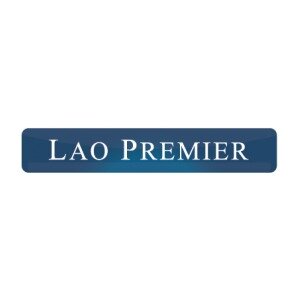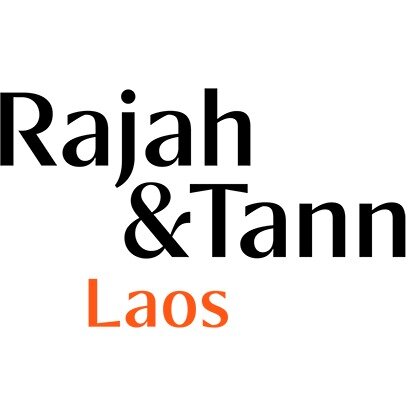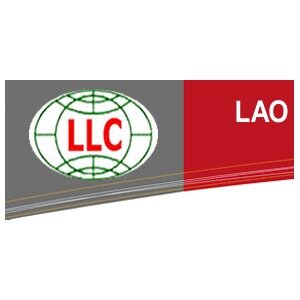Best Communications & Media Law Lawyers in Laos
Share your needs with us, get contacted by law firms.
Free. Takes 2 min.
Or refine your search by selecting a city:
List of the best lawyers in Laos
About Communications & Media Law in Laos
The field of Communications & Media Law in Laos concerns the regulation and management of the country's media industry, including print, broadcast, and online platforms. The legal framework is geared towards fostering an environment of transparency while respecting the rights of the population to freedom of expression in line with international standards. However, Laos, as a one-party socialist republic, maintains strict central control over all forms of media, leading to limitations on free press and independent journalism.
Why You May Need a Lawyer
In Laos, you may require the expertise of a lawyer experienced in Communications & Media Law for numerous reasons. If you are a journalist, a blogger, or the owner of a media company, you may need legal help to navigate the regulatory framework, to challenge laws that seem to infringe upon your right to freedom of expression, or deal with legal issues pertaining to licensing, media ethics, and intellectual property rights. Moreover, individuals who believe their privacy standards have been breached by media platforms may also need a lawyer to seek appropriate legal remedies.
Local Laws Overview
Several laws in Laos pertain to Communications & Media. One of the key ones is the Media Law of 2008, which establishes the government as the central authority on media content and control, strictly supervising all media services. The Penal Law also contains several sections applicable to media regulation, criminalizing actions such as spreading false news or defaming the state and its officials. Subsequent decrees and orders over time have provided further regulations over the use of social media, electronic transactions, data protection, and copyrights, adding complex layers to the legal scenario of media and communications in Laos.
Frequently Asked Questions
1. Is there freedom of press in Laos?
Although the Lao constitution provides for freedom of press, the government maintains strict levels of control over the media. As such, limitations exist on what can be published or broadcasted.
2. Can I start my own media company in Laos?
Yes, but you will need to go through the appropriate channels to gain permissions and licenses, and must comply with all regulatory standards set by the government.
3. What can I do if my privacy has been violated by a media company?
If you believe your privacy has been violated, you may be able to seek legal remedies. It is recommended to consult a lawyer to understand your rights and possible courses of action.
4. How is social media regulated in Laos?
There are specific government regulations addressing the use of social media in Laos. Users have been prosecuted for expressing dissenting views or 'spreading false news' online.
5. Can I be sued for something I post online?
Yes, under certain circumstances, you can be sued for what you post online, especially if it defames individuals or contradicts the government’s official stance.
6. Are there laws governing intellectual property and copyright in Laos?
Yes, Laos has laws governing intellectual property and copyright. However, enforcement can be complex, making legal counsel essential in such cases.
7. Can I report media bias in Laos?
While provisions exist to report media bias, the reaction of the authorities can be unpredictable given the state’s fund and control over the media.
8. Is foreign media allowed in Laos?
Foreign media is allowed, but is closely monitored and regulated by the government.
9. Do I need a license to broadcast news in Laos?
Yes, any form of broadcasting in Laos, including news, requires a license from the government.
10. Can I freely express my views online in Laos?
In practice, though the Constitution guarantees freedom of expression, the government maintains strict online surveillance, leading to self-censorship by users.
Additional Resources
The Ministry of Information, Culture, and Tourism in Laos is the main governing body for media-related issues. The Lao Press in Foreign Languages and the Lao Journalists Association may also provide useful resources. For laws and regulations, one may refer to the Official Gazette published by the Ministry of Justice.
Next Steps
If you find yourself in need of legal assistance in the field of Communications & Media Law in Laos, it is advisable to seek the help of a professional who specializes in this sector. A trained lawyer can provide guidance on local remedies available to you, inform you about the nuances of the legal landscape, and represent you effectively if required. It is also recommended to always stay updated about legal changes in this sphere as the communications and media sector in Laos constantly evolves under new regulations and controls.
Lawzana helps you find the best lawyers and law firms in Laos through a curated and pre-screened list of qualified legal professionals. Our platform offers rankings and detailed profiles of attorneys and law firms, allowing you to compare based on practice areas, including Communications & Media Law, experience, and client feedback.
Each profile includes a description of the firm's areas of practice, client reviews, team members and partners, year of establishment, spoken languages, office locations, contact information, social media presence, and any published articles or resources. Most firms on our platform speak English and are experienced in both local and international legal matters.
Get a quote from top-rated law firms in Laos — quickly, securely, and without unnecessary hassle.
Disclaimer:
The information provided on this page is for general informational purposes only and does not constitute legal advice. While we strive to ensure the accuracy and relevance of the content, legal information may change over time, and interpretations of the law can vary. You should always consult with a qualified legal professional for advice specific to your situation.
We disclaim all liability for actions taken or not taken based on the content of this page. If you believe any information is incorrect or outdated, please contact us, and we will review and update it where appropriate.
Browse communications & media law law firms by city in Laos
Refine your search by selecting a city.












